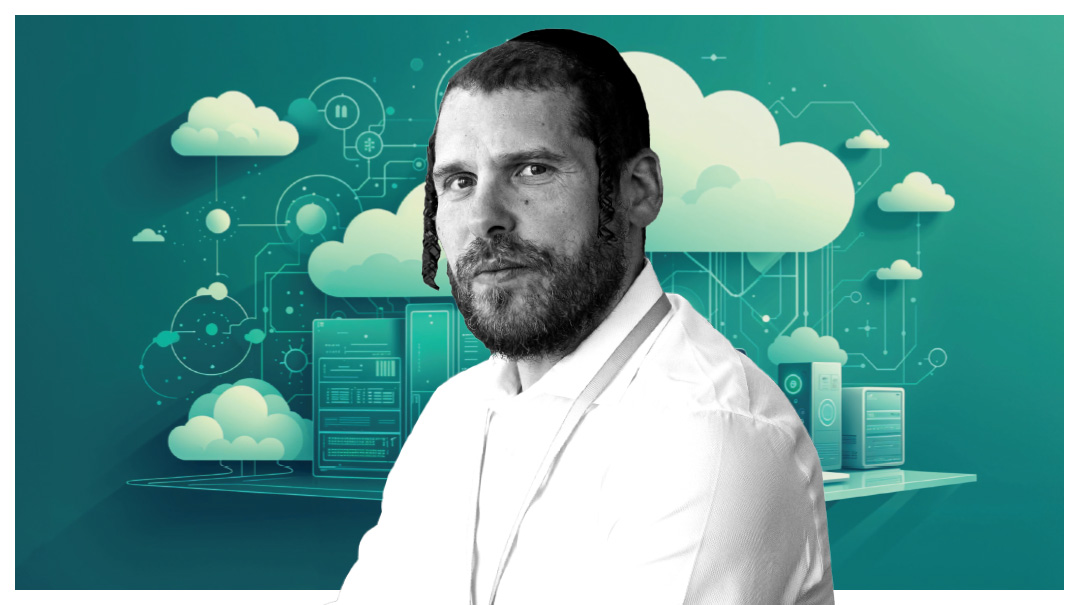Between Jobs

"We want you to know who you are, and what you’re hard-wired to do, so you can be really good at what you do”

In the COVID-altered workplace, today’s employers are laser-focused on skills and abilities while jobs are being streamlined, as companies see that they can be supported by an online presence. The radical change in the way we’ve worked over the last few months means that new employees have to figure out how to succeed within a post-pandemic framework. With remote employment here to stay, what are your best options for solid, steady and lucrative work?
Avrumi is leaving kollel and needs to find employment. He’s heard that people do well with Amazon sales — would it be a good fit? Sari just came back from seminary and all her friends are going into PT; should she consider it as well? Pursuing a new career always requires serious thought and planning, but the worldwide pandemic still has the economy quavering, and there are new dynamics at play that every newbie to the workforce needs to consider. And although COVID has been a shock to the global labor market, it has actually brought new jobs and novel opportunities in its destructive wake.
Whether you’re an employer with hiring needs, an employee who recently lost your job, or a newcomer to the job market, this unparalleled public health disaster has created a broad range of new roles and fresh possibilities. The economy is uncertain, but there’s one thing that is universally agreed upon — it’s time to think differently.
In the summer, the Education and Parnassah Institute (EPI) was approached by a host of new and fearless start-ups, which was a nice surprise for this non-profit organization that assists community members in navigating the workforce through career and business guidance, skills development, and interest-free loans. In the early days of the pandemic, EPI created a multimillion-dollar loan fund specifically for established companies, but the response wasn’t as strong as expected. Businesses, concerned about their overall viability, were scared to take on more debt.
But just a few months later, would-be entrepreneurs decided to take advantage of the shifts in consumer behavior and the new needs spawned by the virus. Established businesses had learned that they could be just as productive with a leaner workforce, and the resulting layoffs have spurred many into taking their skills and starting out on their own. Which way is the right way to go if you have the entrepreneurial urge?
“Find a niche, an area not yet fully developed,” says EPI’s executive director Zisha Novoseller. “Gather your resources, like family connections, education, past experience, or a hobby you have been fostering, and develop a structure from what you already have.”
Now is a good time to reassess your strengths and build on them, says Jacob Engel, author of The Prosperous Leader – How Smart People Achieve Success, and founder of Yeda LLC, which gives seminars and courses to entrepreneurs and business owners. But he qualifies that the first step is to question whether you are suited for freelance or independent work, and to define what field satisfies and energizes you. “When you work at something that is not suitable to your skills and personality,” says Mr. Engel, “you feel tired and drained. The right match, however, leaves you energized and productive.”
Adele Dubin and Natasha Srulowitz, founders of WayFind, say their career counseling service has experienced an upswing with COVID. WayFind offers direction, aptitude testing, college and educational guidance, and job preparation, and there is more demand from several demographics. The women credit this in part to the increase in young adults home early from Israel, and they have also seen an increase in the number of mature clients seeking a new field or to tweak their existing base. These clients, who are in their 30s, 40s, or older, were either laid off, are dealing with an altered work environment, or decided that now is a good time to change course.
“We see our role as an opportunity to empower people with clarity and confidence during these uncertain times,” says Mrs. Dubin. “We help our clients achieve awareness of their personal strengths, interests, and goals, and we provide the resources to educate and inform them of the careers best suited to them, so they can navigate their way to success and fulfillment.”
Whereas employers used to hire people with general skills and train them, now they are laser focused on skills and abilities. Jobs are streamlined, and hiring is more calculated. “As a result, choosing your career should be a more calculated choice as well,” says Mrs. Srulowitz.
The radical change in the way we have worked over the last year has made a significant impact, and the new employee has to figure out how to succeed within this new framework. “Today the infrastructure is there, remote access is normal, and companies see that they can be supported by an online presence,” Mr. Engel explains. Remote employment is here to stay.
Engel advised people to develop their “soft skills” to succeed with the new norm. The hard skills, generally considered the most important, encompass the practical — accounting, marketing, and computer skills, for example. But it’s the soft skills — communication and listening, discipline, integrity, and time management — that are essential in today’s heavily virtual hiring environment. An employer wants an employee who will take responsibility and deliver without excuses. Because many employees are now working independently, trust has become a significant factor. And, notes Mr. Engel, “When a person has the soft skills, he can transfer his hard skills to different arenas.”
The post-COVID employee will likely be entering their chosen field without the support of a training structure, little mentoring, and many distractions. “Right now, 70 percent of employees are still working from home. If this continues, there will be a need for the development of a new format of training and employee interaction,” says Mrs. Dubin. “This shift means potential employees will have to be equipped with strong soft skills — creativity, adaptability, teamwork, problem-solving, and communication — all of which are necessary for successful remote employment.”
Yet because many companies have moved their workforce online, gaps in training and mentorship have developed. This makes it so much more important to have the proper training and the soft skills to interact successfully in this new business world. Today’s employee has to be self-sufficient. “It’s harder to just go with the flow by remote,” says Mrs. Dubin. “You have to know what strengths you have to draw upon so you can hone in on what comes naturally to you and capitalize on it. We want you to know who you are, and what you’re hard-wired to do, so you can be really good at what you do.”
For many young people on the cusp of entering the workforce, the first decision they face usually revolves around education toward a career choice. But all across the US, colleges are seeing a decline in enrollment, as many students are choosing to defer their studies. With so much instability, students don’t know what to expect, and there are also fears that with no sports, no social activities, and remote classes, their college experience will be compromised, which doesn’t justify the huge expense.
Mrs. Raizel Reit, founder of Testing and Training International, believes that a college degree is important for stability, especially now when people are desperate for parnassah. TTI, which partners with nationally and regionally accredited universities to bring higher education to the frum community in a controlled, Torah-based environment, caters to students who don’t want to go the traditional degree route. TTI experienced a surge when yeshivah and seminary students came home early last year, as well as adults who found themselves with extra time and chose to complete studies they’d left behind.
Mrs. Reit says that TTI has not yet seen a substantial change in students’ interests. Degrees in business, nutrition and special education are still popular, and accounting and education remain strong options as people are looking for careers that allow them to work remotely. Healthcare, she notes, is also on the rise now, and even if that’s short term, you can’t go wrong with it because it’s always a necessity.
The educational environment is in flux, the hiring landscape has been transformed, and new ways of commerce are exploding. Where is the newcomer to begin? Mrs. Srulowitz believes that IT represents today’s number-one opportunity because it’s so broad. “Cybersecurity, programming, data science, financial metrics, and marketing metrics are good choices. And if you have the aptitude, you can pursue these fields by undergoing a shorter, more immersive technical education.”
The field of IT also encompasses e-commerce, web design, and search optimalization — all areas that address today’s demands for sharing information. Mrs. Srulowitz adds that the back end of these industries is also very hot right now, with demands in fields using virtual reality, such as UX designer, UI designer, web developer, and data analyst.
Cybersecurity, virtual reality, and artificial intelligence are also fields that are racing forward, according to Jacob Engel. Cybersecurity entails protecting and recovering computer systems, networks, devices, and programs from any type of cyberattack. The world is increasingly reliant on technology that is vulnerable to ransomware attacks and other malware; this reliance has only increased with the present crisis. Likewise, the field of artificial intelligence opens up jobs for those trained in speech recognition (which makes your computer listen and speak), machine learning (which enables machines to translate, execute and investigate data), and robotics. Mr. Engel says he’s also seeing increased demand from employers for those in accounting, because with all of their outsourcing, there is a demand for bookkeepers, both remote and in the office.
Nowadays, he says, it’s all about skills, not degrees: “If there’s anything this pandemic has taught us, it’s the importance of maximizing return on investment on both time and money.” He describes a recent Google launch offering a selection of professional courses that teach candidates how to perform in-demand jobs. The courses, which the company is calling “Google Career Certificates,” teach foundational skills that can qualify you for immediate employment. Instead of taking years to finish, like a traditional college degree, the courses are designed to be completed in about six months. The three new programs being offered are project manager, earning a median annual wage of $93,000, data analyst at $66,000, and UX designer, offering a median annual salary of $75,000, and Mr. Engel notes that getting certified in these fields can work even without a degree.
Today’s job seeker still needs a solid education, in whatever format. “You can’t just rely on your drive and resources anymore,” explains Mrs. Reit. “That may work when times are good, but when the economy fails you need something to fall back on.” One big benefit of an education, she says, is that it will get you in the door. To that end, TTI’s career school teaches web design, photography, interior design, and video editing — courses that help students become freelancers and start their own businesses, with an emphasis on immediate entry to a parnassah.
While not everyone is cut out for independence, and many in the workforce are happy to be efficient employees without the accompanying pressures, many mentors prefer to encourage those who have the skills, drive, and appetite for independence to pursue opening their own businesses. It’s often more financially advantageous for one’s family, and it benefits the community as well.
EPI is a big promoter of this approach. “Our communities are insulated,” explains Mr. Novoseller. “We hire our own and serve our own. We’ve almost created our own microcosm economy. For that reason, our business community may have suffered less.”
One essential condition, though, is that any new business venture be able to replicate itself online. Law, accounting, IT, financial management, insurance, actuarial services, and human resources can perform well through remote operation. There is also a lot of opportunity in the e-commerce space.
Interestingly, a corollary to the online commerce boom is the transportation and trucking industry. All those Amazon customers expect timely and efficient delivery, and while there aren’t too many truckers in the frum world, fields related to transportation are seeing a strong demand. Mr. Novoseller also points out that because imports from China have been blocked, there is less of an available inventory of new cars. Consumers are now cautious about spending on big ticket items, and many are reluctant to use public transportation, which has produced a boom in the used car industry and a strong increase in sales. On the other hand, real estate and service-based businesses that require in-person attendance —think gyms, restaurants, and the hospitality, entertainment, and tourist industries — have suffered.
STAY FOCUSED AND RESILIENT
While some colleges have seen a decline in enrollment over the past year, Dr. Alan H. Kadish, president of the Touro College and University System, says that Touro has not felt the impact of the pandemic in a drastic way. The health sciences are still enormously popular, and on the graduate level, there has even been a small increase in applications for degrees in public health and in biotechnical studies. Medical and nursing school applications are up; students admire healthcare workers and view the field as both a noble pursuit and a clear societal need, and they want to contribute and join the “front lines” themselves. Overall, says Dr. Kadish, students are gravitating toward the sciences as the pandemic continues.
Besides for the “hard core” medical and health sector careers, there are lucrative and less intensive support and research positions now in greater demand – genetic engineers, medical technicians, respiratory therapists, and x-ray and sonography technicians. Dr. Kadish, himself a cardiologist, concurs that healthcare fields will remain safe and strong. He cites job surges in dentistry, family practice medicine, nursing, and physician’s assistant positions.
While times are too fluid to predict the future, one factor is assured: “Telecommuting is here to stay, so it’s a factor you should consider in your decision,” he says. “And with the realization that working remotely can be successful, these changes are not going away.”
Dr. Kadish advises that if you are at the end of your educational career, making a mid-stream career change, or you need income soon, stay away from the service industries that have been hard-hit, because they’ll take at least a year or two to rebound. In fact, Touro College plans to downsize its own operational office space by about 25 percent. “We’ve found that our employees working from home are just as effective and productivity is stable,” he says. “Why bear the cost of the extra office space?”
What Employers Are Looking For
As remote work and telecommuting become the norm, many students are completing internships and starting new positions without ever stepping foot in the office. “For businesses to thrive in this environment, employers are looking for self-starters and people who are adaptable,” says Dr. Kadish. New employees need to be on top of their projects and deadlines and know how to reach out for assistance and support when they need it. Managers are not walking by their desks to check in, so employees must be proactive in scheduling meetings with supervisors. It may not come naturally to recent grads just entering the workforce but they will have to take more initiative and speak up during zoom meetings if they want to be seen and noticed, he explains. It’s important to take advantage of mentoring meetings since those natural office meet-ups just won’t be happening in the foreseeable future.
In fields like finance and accounting, it’s now assumed that those working from home will have advanced computer technology skills and are able to complete projects on their own.
In fields like healthcare, the expectation is that not only are employees at the top of their fields in terms of skills and competency, but that they are also consummate professionals who put the needs of patients first and foremost. This is both more important now and harder to do, according to Dr. Kadish. During the pandemic, there are large sacrifices attached to making patients top priority. Healthcare professionals come in contact with COVID patients regularly and have to worry about their own health and their family’s safety.
In the healthcare arena, someone who’s confident of his or her clinical expertise and also passionate about caring for patients will be successful. People must excel at navigating relationships — with other professionals so they can collaborate on care delivery, and with patients and families so they can make them comfortable during their most vulnerable moments.
What should students ask themselves as they prepare for careers in just about any field in today’s turbulent times? Dr. Kadish’s advice is both timely and timeless. “Look at three things: what you’re good at, what you like, and the impact your chosen career will have on your life. Of these three factors, what you’re good at and what you like have not changed in the present disorder. But the impact your choice will make on your life is an altruistic question, and that has changed.”
While the COVID crisis is still in flux, and it can be a bewildering time for a new career or a career change, we Jews have always taken the long view of history. “Stay focused, stay resilient, stay safe,” Dr. Kadish advises. “It may be tough for a year or two, but if you stay positive and make the right choices, you’ll see success. Pessimism is not a Jewish trait.”
Tired of looking at the same old wall color? Need to convert that corner nook into a quasi-office? The fallout of so many of us hunkering down at home has spurred the home improvement industry. That’s why EPI advises looking into service-based businesses or jobs in HVAC, electric, plumbing, and heating—service industries are thriving. Design and construction are seeing an upswing in demand as people use this time to improve and upgrade their homes.
But a home improvement job doesn’t always chase away the blues. Mrs. Dubin and Mrs. Srulowitz predict that the mental health counseling field will see an upsurge as a direct result of the lockdowns, isolation, and rise in mental health and substance abuse issues. Along with psychologists and psychiatrists, the coming years will see a greater need for social workers, marriage and family therapists, substance abuse counselors, and mental health counselors. And all this is with a new twist: the public, and more importantly, major insurance companies, have become more comfortable with teletherapy and welcome the convenience and privacy of a virtual platform. The acceptance of teletherapy has proven to be a win-win for practitioners, insurance companies, and hopefully, for patients as well. It keeps costs down, provides one-on-one service, and maintains job retention for health practitioners and their support staff.
“Fields always fluctuate, and interests become more or less popular,” says Mrs. Reit. But, she advises, the popularity of professions notwithstanding, when making one of the significant decisions of your life, you should consider your strongest skills and your inner calling.
“Seek a career that speaks to you, and you will always be passionate and ambitious,” Mrs. Reit says. “You shouldn’t base your decision on money or the length of the education — or even the coronavirus. Take a broader view.”
(Originally featured in Mishpacha, Issue 845)
Oops! We could not locate your form.













